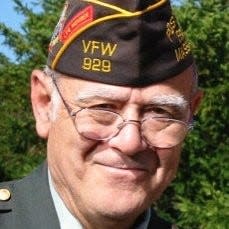Framingham marks 70th anniversary of the Korean Armistice Agreement on Thursday
William J. Ablondi, Malen W. Barker, Richard J. Perry, Austin J. Gannon Jr., Percy Hauptman, John M. McQuinn and Philip R. Thomas are the names on the plaque in the Rotunda at City Hall recalling their supreme sacrifice during the Korean War. Are they forgotten? And is the "Forgotten War" not remembered?
Well, not here in Framingham.
The Commemoration of the 70th Anniversary of the Korean-U.S. Alliance & Cease Fire of the Korean War (the Korean Armistice Agreement) takes place at 6 p.m. this Thursday at the Cushing Memorial Chapel, 60 Dudley Road, Framingham. This is a public event, with Consul General of South Korea Kim Jae Hui featured in the program. The commemoration is being conducted by the Scott Milley VFW Post 7881.

And now a little history from 70 years ago.
The war was originally described as a "police action" until many years later, when it was retitled the "Korean War." And that is what it was. It was not recognized as such, because it was sandwiched between — and overshadowed by — World War II and the Vietnam War.
Many people were exhausted by the turmoil in the world from the long World War II. The term "police action" was seen as a better choice for the public to accept.
The public asked, "Five years later another war?" There were, however, more than 5 million people including soldiers who lost their lives.
According to the Defense POW/MIA accounting firm, (DPAA):
There are still 7,496 unaccounted for missing in Korea
There are 1,570 unaccounted for from the Vietnam War
Sixteen members of the United Nations sent troops for assistance to Korea to stop the aggression of North Korea, the Republican army and, later, the People's Volunteer Army of China
The Korean War was also known as the "Accordion War" — the line of battle moved up and down the peninsula that is Korea many times, just as an accordion opens and closes its bellows. Big Brother — the United States, who else? — took the lead role for the UN. Negotiations dragged on for two years and 17 days, requiring 158 meetings. There may have been fewer if North Korea was not positioning itself to take advantage of any weakness in the United Nations.
Discussions ranged from where the dividing line should be, what constituted an equitable prisoner exchange and the solution of neutral nations to monitor the agreement.
It was the longest negotiated armistice in history.
Gen. Nam Il was the senior deputy representing the Korean People's Army and the People's Volunteer Army of China. Vice Admiral Charles Turner Joy, of the U.S. Navy, was the senior delegate for the Korean armistice talks. He wrote a book about his experiences, "How Communists Negotiate."
President Dwight D. Eisenhower, himself a World War II Army general, was successful in obtaining a cease-fire through diplomacy and military might.
Eisenhower started with a tour of the situation in Korea firsthand. Small skirmishes up and down the same hills were still occurring daily. They added to the casualties but did not accomplish anything toward a cease-fire agreement.
The new president, recognizing that situation, immediately made plans and the cease-fire was signed on July 27, 1953.
Afterward, Eisenhower spoke to the troops, saying the United Nations — led by the United States — acted with deeds of decisive purpose. North Korea was prevented from having communist rule over South Korea.
Framingham resident Nick Paganella served in the Massachusetts National Guard and the 7th Infantry Division in Korea. He is program chair for the city's commemoration of the 70th anniversary of the Korean War, which takes place at 6 p.m. Thursday at Cushing Memorial Chapel, 60 Dudley Road, Framingham.
This article originally appeared on MetroWest Daily News: Framingham plans 70th anniversary commemoration of Korea Armistice
